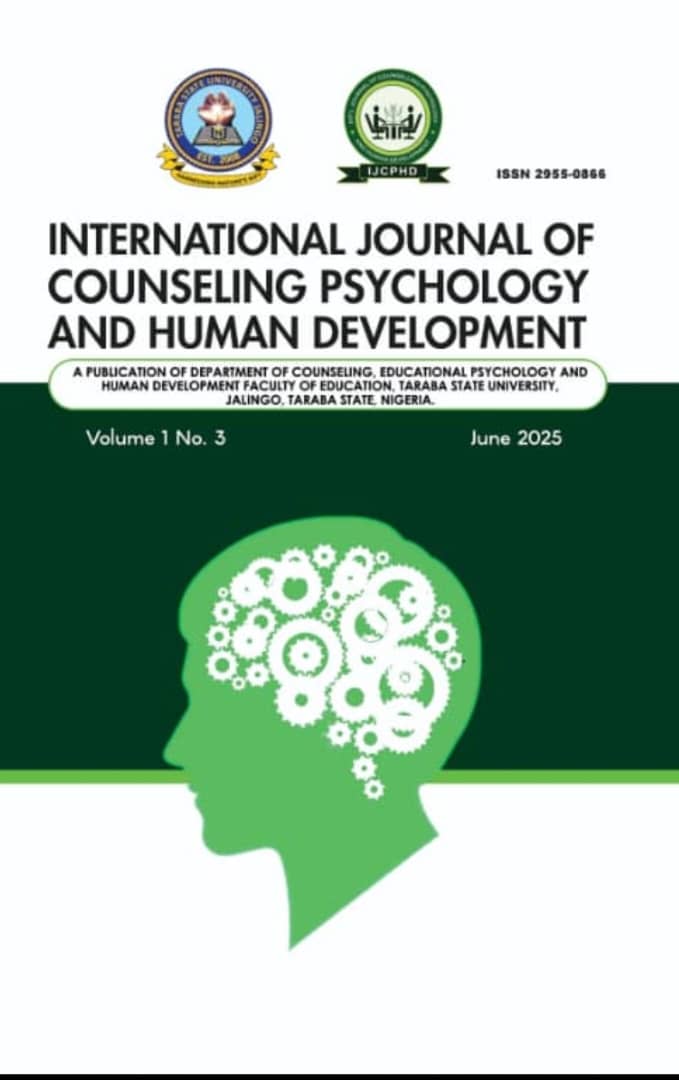Influence of Financial Planning and Welfare Provisions on the Psychological Wellbeing of Teachers in Public Secondary Schools in Wukari Education Zone Taraba State
Keywords:
Financial Planning, Psychological Wellbeing, Public Secondary Schools, Teachers, Welfare ProvisionsAbstract
This study investigated the Influence of financial planning and welfare provisions on the psychological wellbeing of teachers in public secondary schools in Wukari Education Zone, Taraba State. The study adopted a Descriptive Survey research design. The population comprised 1,204 public secondary school teachers across six local government areas, from which a sample of 300 respondents was selected using Taro Yamane’s formula at a 5% margin of error. A stratified random sampling technique ensured proportional representation from each local government. Data were collected using a structured and expert-validated questionnaire. A pilot study was conducted, and the instrument’s reliability was confirmed with a Cronbach’s alpha coefficient of 0.83. Linear regression was used to analyze data and test the hypotheses. The findings revealed that financial planning had a significant positive influence on the psychological wellbeing of teachers, as indicated by a Beta value of 0.592. Welfare provisions also significantly predicted psychological wellbeing, with a Beta value of 0.638. While respondents acknowledged the positive roles of financial planning and welfare provisions, they also expressed dissatisfaction with delayed salaries and lack of involvement in welfare-related decisions. The study concludes that effective financial planning and participatory welfare provisions are crucial for enhancing teachers' psychological wellbeing. It recommends the implementation of financial planning programs and inclusive welfare policies to support teachers’ mental health and professional effectiveness.


